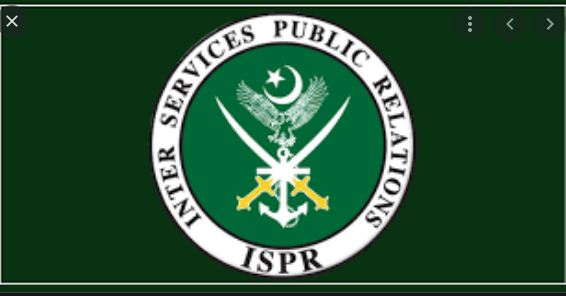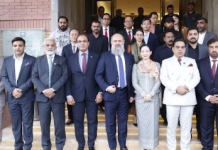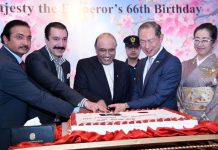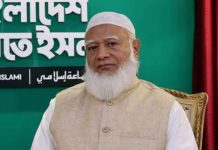ISLAMABAD, July 10 (DNA): Director General Inter Services Public Relations (DG ISPR) Major General Babar Iftikhar on Saturday said the Afghan Peace Process has many aspects where it should be understood that Pakistan was only a facilitator and not a guarantor in the process.
The ISPR DG in an interview said that the main stay of resolution to the matter was on different factions of Afghans who would have to decide the future course of the issue.
Major General Babar said the peace process was at a critical stage as far as Pakistan was concerned. It took efforts to take the peace process sincerely with the core vision of Afghan led and Afghan owned peace process.
In past 20 years US Army trained Afghan National Army that has strength, capability and its own Air force with presence on ground. He noted that there has been heavy spending on afghan forces and the US Army trained them.
He maintained that the Afghan National Army was trained, equipped and had special and air forces, adding, Trillions of dollars have been spent on them and as a professional soldier I believe that they should be able to fight this onslaught as a professional force.
Major General Babar added that they have the capacity and despite that they did not withstand then its reasons to be guided through internal dynamics and on ground complexities.
The ISPR DG said that we needed to understand that it would be Afghans own decision and would not be dictated by any foreign party.
Responding to another query, he said the US have withdrawn and their allied forces have left and would completely leave by 31 August whereas the stakeholders in the region would have to decide the issue in consultation with Afghan leadership.
He said that the counter strategy was long discussed and the world had observed that Pakistan had very sincerely taken the peace process.
“Pakistan has no favourites among Afghan stakeholders. The decisions to be taken by Afghans and they have to decide their leadership in case of any deadlock we can assist. Pakistan has made all out efforts and could not exceed limits. Afghans have the capacity and capability to decide their future course themselves,” he said.
The ISPR DG was of the view that the gun (force) was not the solution to resolve Afghan crisis as through guns it could not be decided since the past two decades and it was not an option in the future. Referring to the armed conflict taking place in Afghanistan among Taliban and Afghan Forces, he said this was just a phase and a decision could be made only through dialogue.
He informed that Pak-Afghan Border security and management has been beefed up and the 2611km stretch of the border was 90% fenced whereas the leftover places were either high altitude or glaciated places. However, forts were built with proper mechanisms and Frontier Corps (FC) new wings developed to manage the posts, he said.
The spillover effect after the civil war may have come to Pakistan that had come earlier and we were very well aware of that and took many measures to cope with the situation, the ISPR DG said.
“Daesh and TTP groups are based in Afghanistan and attacking Pakistan’s Armed Forces whereas we bore casualties during border fencing,” he informed.
Major General Babar said the mechanism for Afghan border fencing was better and the Armed Forces were very well prepared, adding, “God Willing, we should be able to take care of this situation.”
Replying to another query on impending Afghan Refugees influx in case of any civil war, he said the Interior Ministry has made contingency planning to manage refugee inflow in case of violence whereas the international community and regional stakeholders would have to decide the Afghan issue.
He noted that Pakistan’s approach was very clear as it remained committed to never let its soil be used against anybody. Unfortunately, there has been no serious effort made by the international and Afghan forces to make air tight control to contain terrorist activities against Pakistan, he noted.
He maintained that the responsible withdrawal meant a meaningful exodus of the US Forces after a complete transition which was the demand of all stakeholders.
Indian investment in Afghanistan aimed at establishing its influence to damage Pakistan’s interests, however, after the prevailing scenario, there was huge frustration on Indian side. It’s all focus was towards damaging Pakistan and it had moved its spoilers in different directions to blame Pakistan for the unrest in Afghanistan whereas the world has realized that Pakistan did earnest efforts to resolve Afghan issue as per local masses’ aspirations, he said.
The ISPR DG said that Indian propaganda would not get any traction whatever propaganda level they were going to apply.=DNA
==============

















